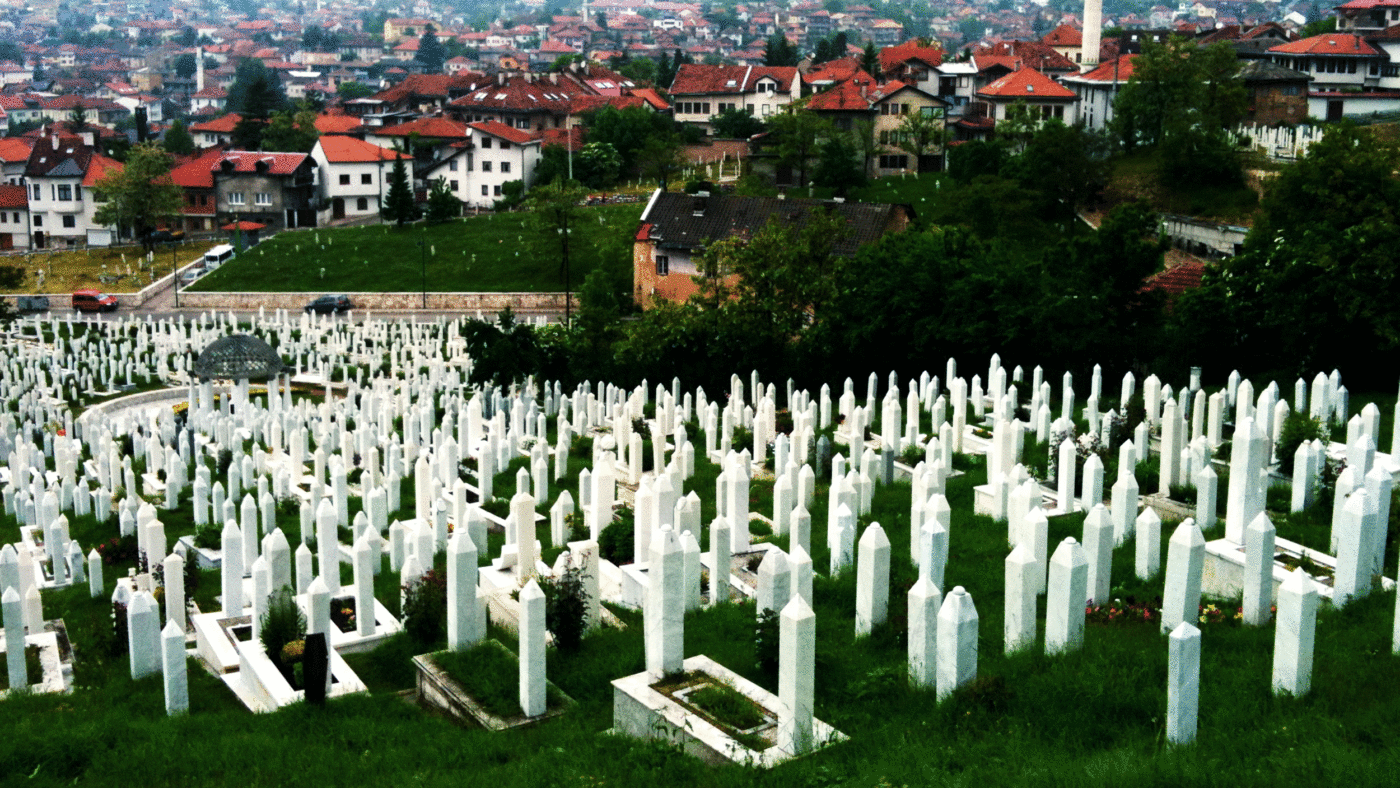Almost 30 years after the start of Europe’s bloodiest conflict since World War II, Bosnia is once again on the brink of a crisis. With a Serb strongman leader exploiting ethno-nationalist sentiment and threatening to break up the country, history looks perilously close to repeating itself. As tensions flare again, it’s worth remembering that this troubled region also offers hope in a world increasingly riven by religious strife and extremism – an example of how cooperation and friendship across faiths can save lives: Baljvine, the village that rejected war.
In the early 90s, as non-Serbs were being massacred across the country, Momir Talić – a brutal Yugoslav army general later convicted for war crimes including genocide and torture – reportedly visited the tiny mountain village and threatened to expel the Muslim population. But the villagers stood up for their neighbours, and insisted that they wished to continue living side by side. Realising he couldn’t succeed in pitting Christians against Muslims, Talić ordered his troops to leave. Peace prevailed, and Baljvine became the only place in the Serbian Republic (the Serbian entity within modern-day Bosnia) where the village mosque survived, and the Muslim population escaped unscathed. After the war, the village’s Muslim community helped build a new Christian Orthodox church, ensuring that everyone in Baljvine had a place to pray.
Baljvine is just one example of the extraordinary things ordinary people are capable of. Closer to home, people in Bushey in Hertfordshire came together thanks to the efforts of a local synagogue to collect supplies for Afghan refugees housed in the area. United in solidarity with the refugees, people of all faiths and none rallied to support the synagogue in its efforts and in a matter of days, local mosques and churches rallied together to fill the synagogue parking lot with bags of warm clothing, toiletries, toys, and basic school supplies. Whether in Bosnia or in Britain, these examples serve as timely reminders that when communities come together, everybody benefits.
Remembrance Sunday marked the start of Inter Faith week, an opportunity to reflect on the sacrifices made by people of every colour and creed to protect our shared values. At a time when Britain has suffered two apparently ideologically motivated terror attacks in as many months, it can be difficult to appreciate the good that religion can do. Yet, dialogue between different faith communities and faith-based peace initiatives have proven to be invaluable in promoting understanding and reconciliation.
The essence of the Inter Faith week is people coming together across differing religious lines for the greater good. Granted, this alone cannot remove hate and prejudice; we know how easy it is to demonise, or simply dismiss, people you don’t know or whose religion you don’t understand. But it is essential to recognise that our common humanity transcends religious customs and beliefs.
As Šefko Čaušević, the former mayor of the Muslim part of Baljvine, puts it ‘we are all brothers here’.
Click here to subscribe to our daily briefing – the best pieces from CapX and across the web.
CapX depends on the generosity of its readers. If you value what we do, please consider making a donation.


